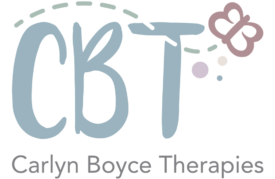Dear Black reader,
"Happy Black History Month!!"
This blog is a letter to you, a reminder that our mental health matters just as much as anyone else's. In a world that often overlooks the unique challenges we face, it’s easy to feel like mental health care isn’t meant for us. But that’s far from the truth. Why is it made out like we shouldn’t achieve? Why are we kept at a certain level, as though we shouldn’t reach our goals or be at our best? You deserve to heal, to grow, and to thrive—and Cognitive Behavioural Therapy (CBT) can be a powerful tool to help you do just that.
What is CBT?
Cognitive Behavioural Therapy, or CBT, is a form of talk therapy that focuses on the connection between your thoughts, feelings, and behaviours. It’s about identifying and challenging the negative patterns that can keep you stuck in cycles of anxiety, depression, or stress. Unlike some other forms of therapy, CBT is structured, goal-oriented, and usually short-term, making it accessible and practical for many.
CBT helps you reframe the way you think about the challenges in your life. For example, if you tend to think "I'm a failure" after a setback, CBT would help you recognise this as a negative thought pattern and replace it with something more constructive, like "I had a setback, but I can learn from this and move forward."
Mental Health Stigma in the Black Community
This elephant in the room is so big that we need to talk about it. Mental health stigma is real, especially in Black communities. There’s a lingering belief that therapy is unnecessary, a sign of weakness, or simply "not for us." We might hear things like "Pray about it" or "What happens in this house stays in this house." While faith and family are incredibly important, they shouldn’t be the only tools we use to address our mental health. This stigma isn’t just confined to the Black community; it’s common in many other cultures as well. However, in our community, it often feels even more hidden, as though acknowledging mental health struggles is a sign of defeat.
Recent events—which always seem to be so recent, reflecting an ongoing pattern—highlight the trauma we face daily. Racism is deeply ingrained in society, and the race-related stress we endure can take a heavy toll on our mental well-being. It’s time we stop hiding from this reality and start recognising its impact. But recognition isn’t enough. What do we do once we acknowledge the trauma? We must understand that these experiences—micro-aggressions, systemic racism, and generational trauma—are not small issues. They are significant and have a profound impact on our mental health. We need to start being truthful about how these "micro" aggressions are actually macro in their effects.
Why CBT is Especially Important for Us
CBT can sometimes seem like it was designed for a very white, Western world, but it can be adapted to fit our communities and cultures. CBT can be particularly beneficial for addressing the mental health issues that disproportionately affect Black people. Whether it’s dealing with the stress of being one of the few Black faces in your workplace, managing anxiety in the face of systemic injustice, or processing the trauma of racial discrimination, CBT provides practical tools to cope.
CBT is also adaptable. As a culturally competent therapist, I can tailor therapy to reflect your lived experiences as a Black individual. This means you won’t just be treated as another case file, minimised, or misunderstood. Your unique experiences, values, and cultural background will be central to the healing process.
Overcoming Barriers to Accessing CBT
It’s hard to find a therapist who looks like you or represents your experiences, and our pool of available therapists is very small. But I want to change that. I want to ensure that therapy is accessible to those from ethnic backgrounds, especially in the Black community. We know that finding the right therapist can be a challenge. Maybe you’ve struggled to find a therapist who understands your background. This is why, aside from providing one-to-one therapy, I’m also committed to mentoring others from ethnic backgrounds who are interested in a career in mental health, psychology, or CBT. I want to change the narrative.
I might not be the right therapist for you— I hope I am but being Black doesn’t automatically make me the perfect fit. But sharing who I am through blogs like this is important for helping you find the therapist who is right for you. If you’re looking for a therapist, here are some tips to help you navigate these barriers:
Finding a Culturally Competent Therapist: Look for therapists who explicitly mention their experience working with Black clients. Remember a therapist who has only attended a course, doesn't make them cultural competent, how have they put that into practice, how have they continued that journey?
Online Therapy: Since there aren’t many therapists who look like us, online therapy might be a better option. The pool of therapists online is often larger, giving you more options. However, if you prefer face-to-face therapy, don’t dismiss this option; there might be someone in your community who is right for you.
Research Therapists: Start by looking up therapists in your area or online who specialise in CBT and have experience working with Black clients.
Reach Out: Send a message or make a call to set up an initial consultation. Remember, the first therapist you meet might not be the right fit, and that’s okay. It’s important to find someone you feel comfortable with.
Join a Support Group: If individual therapy feels like too much right now, consider joining a support group where you can connect with others who are going through similar experiences.
Your Mental Health Matters
We deserve the space and time to prioritise our mental health. So again ' Dear Black reader', I want to remind you that taking care of your mental health is not a luxury—it’s a necessity. You deserve to feel whole, to understand yourself better, and to have the tools you need to navigate this world with resilience and strength. CBT can be a step toward that, offering you practical strategies to manage stress, overcome negative thinking, and build a healthier mindset. A healthier happier you ( the focus of my therapy service)
Your mental health is just as important as your physical health. As I've shared on my "About" page, creating a safe and supportive space for healing is central to my approach, SPACE:
- Safety First Always: Trust in therapy is paramount but so are boundaries. I will always act in a secure, protective manner.
- Passionate About Your Health: I do my very best at every step of your journey to help you in a way that makes you feel better.
- Authentic At Every Step: I’m honest and true with my actions and words.
- Compassionate To All: I recognise your pain and act appropriately to alleviate your suffering.
- Equality (& Equity) For Everyone: I treat every client as an individual regardless of race, gender, sexuality, age or anything else. Health should not discriminate.
CBT is just one of many tools that can help you navigate life’s challenges and build the life you envision. Don’t hesitate to seek the support you deserve—because you truly do deserve it. If you're ready to start therapy, I invite you to book an appointment with me. You can learn more about my approach and services through my blogs and "About" page. And if this has sparked your interest in a career in mental health, I encourage you to explore that path as well.
Since it's Black History Month, remember let's celebrate the incredible aspects of being Black and the positive contributions of our history.

